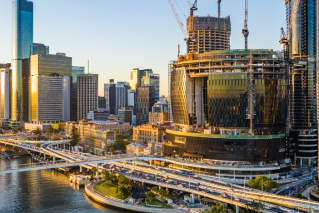No recession, but IMF downgrades Aussie growth, tips ‘soft landing’
The International Monetary Fund expects Australia to dodge a recession but has downgraded its expectations for growth next year.

Job advertisements have started to fall (Photo: ABC)
The United Nations agency anticipates growth slowing to 1.7 per cent in 2023 – less than the 1.9 per cent forecast in its world economic outlook released last month.
In its annual health check on the Australian economy, the IMF pointed to Australia’s resilient domestic buffers to economic headwinds, including decent household savings.
“Between the slowing global growth and some still-resilient domestic buffers, Australia is on a narrow path for a soft landing,” the report said.
But Australia is not out of the woods – a larger-than-expected slowdown in China’s growth would put the nation’s exports at risk and higher inflation and wage growth domestically could prompt further interest rate rises from the central bank.
“The decline in housing prices has the potential to accelerate, which can reduce household consumption, with some impact on banks’ balance sheets,” the IMF warned.
The agency urged to the Reserve Bank to keep lifting interest rates to cool demand and called on the government to keep spending constrained and targeted.
It also weighed into Australia’s tax reform debate – noting the stage three tax cuts would reduce the personal income tax burden and Australia would be best to double down on “under-utilised” indirect taxes, such as property taxes and the goods and services tax.
“Longstanding recommendations include broadening the GST base to limit exemptions for healthcare spending and restricting the capital gains tax exemption for the sale of main residences,” the report said.
The IMF recommended ditching stamp duty in favour of land taxes to promote housing affordability, labour mobility and a more sustainable tax base.
The agency welcomed Australia’s renewed commitment to climate mitigation and said more renewables in the grid would improve the resilience of the electricity sector and insulate the country from price spikes and energy market volatility.
While recognising the political challenges of implementing a price on carbon, the IMF said an economy-wide carbon price was the most effective way to achieve emission reductions.
The agency also urged Australia to go further on structural reforms to boost labour productivity, including policies that support female labour force participation.
The agency welcomed the review of the RBA and said regular reviews of central banks were common practice internationally.
The third quarter edition of the wage price index is also due on Wednesday.
In the June quarter, wages grew 0.7 per cent and 2.6 per cent annually.
Economists expect to see wages keep ticking up in the September quarter, with CommSec tipping a 0.9 per cent lift over the three months.












